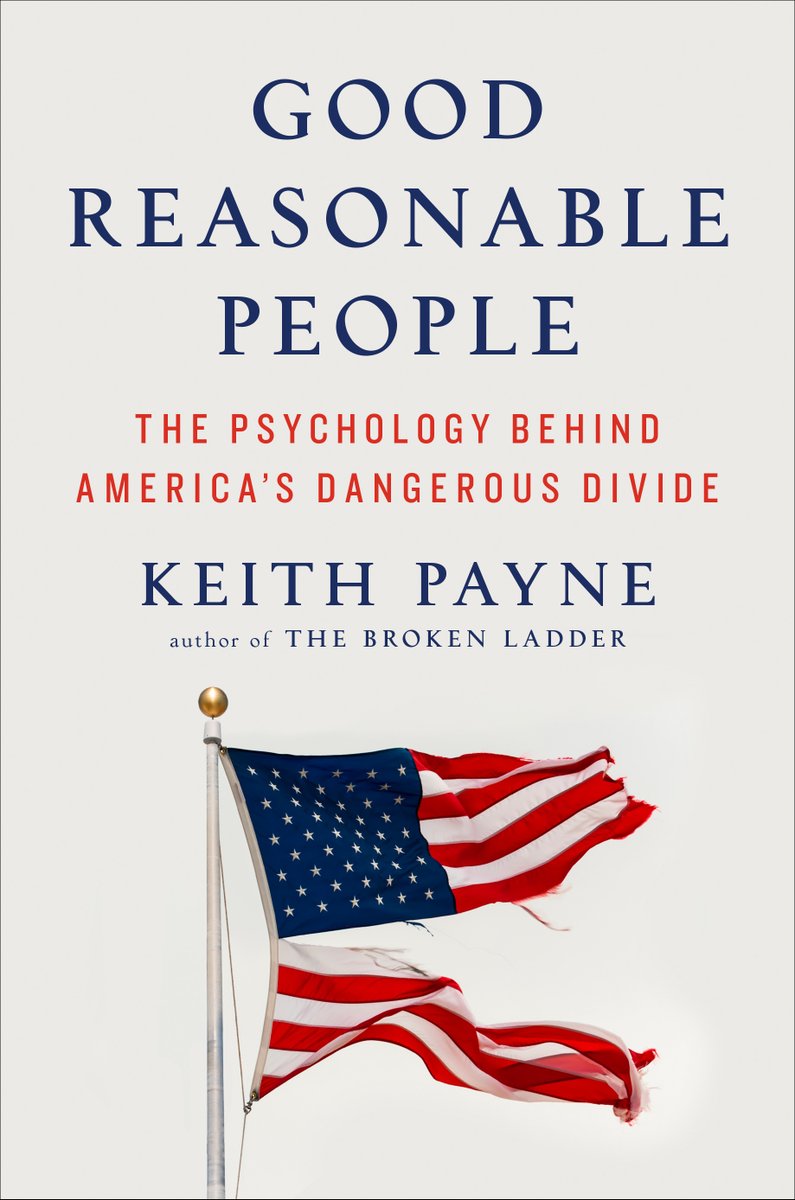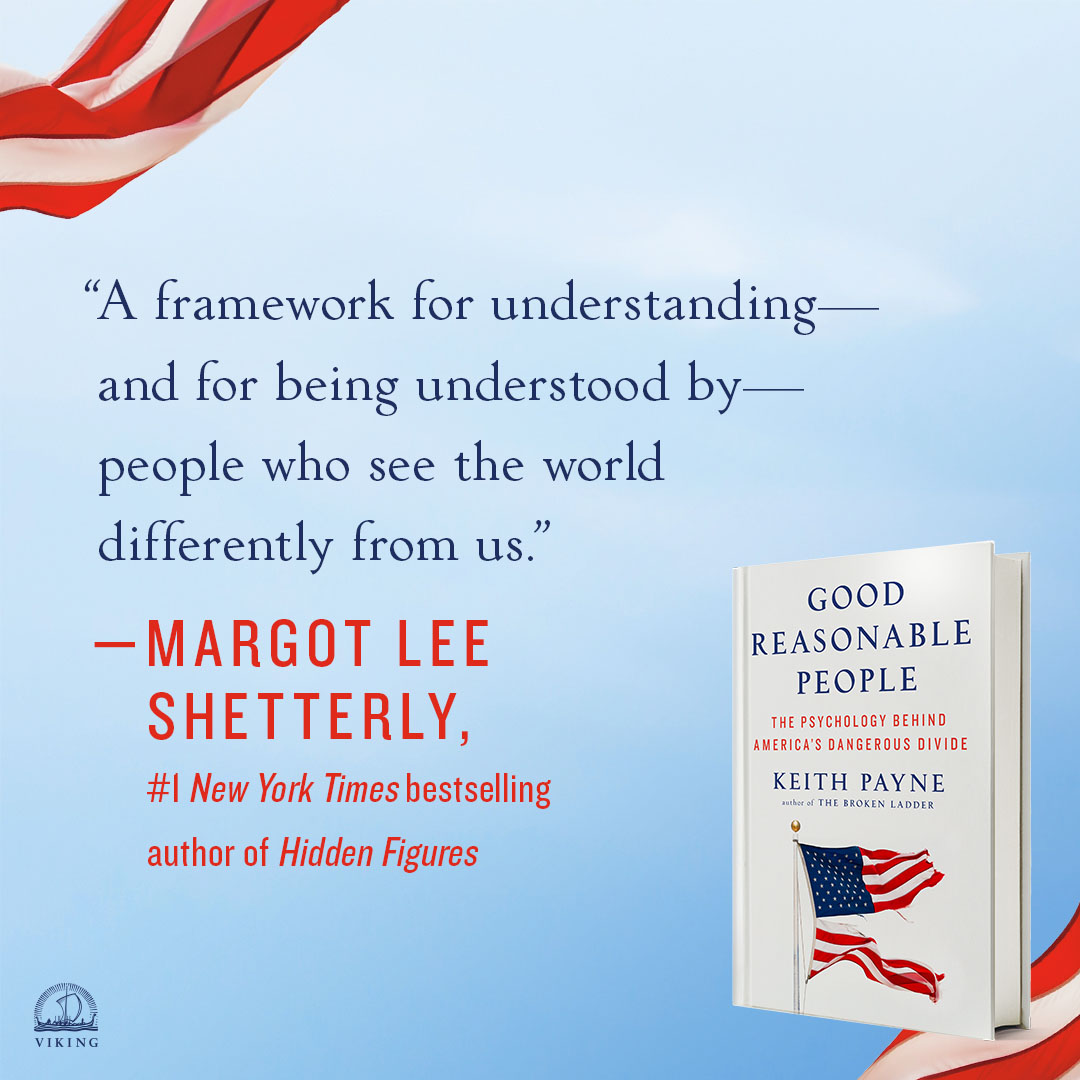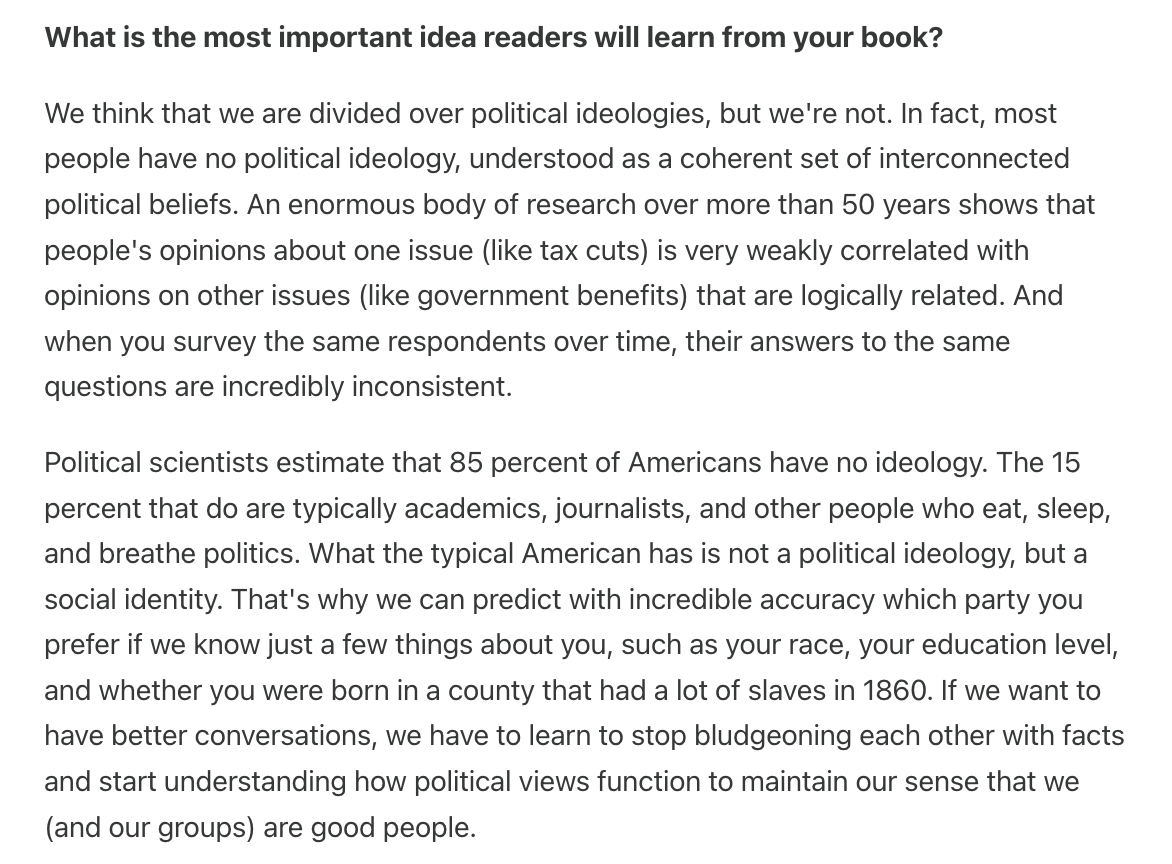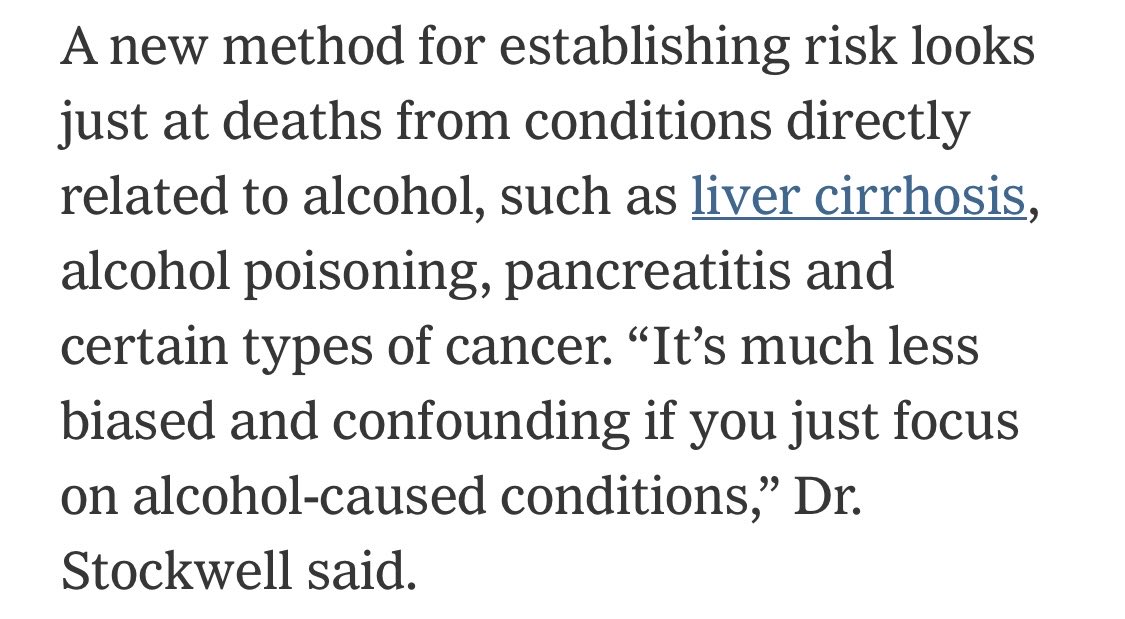
Keith Payne
@bkeithpayne
I study the way inequality changes people. Author of Good Reasonable People and The Broken Ladder
ID: 1151239467417690112
https://www.ted.com/talks/keith_payne_the_psychology_of_inequality_and_political_division 16-07-2019 21:17:32
2,2K Tweet
4,4K Takipçi
1,1K Takip Edilen

🚨 Goodreads Giveaway Alert 🚨 Enter to win GOOD REASONABLE PEOPLE by Keith Payne 👉 bit.ly/4e6gfGf



HENRY V by Dan Jones and GOOD REASONABLE PEOPLE by Keith Payne are included in Next Big Idea Club's list of the "most promising, must-read nonfiction titles" to read this October! 💡🍁 nextbigideaclub.com/magazine/next-…

In a time of division and polarization, Keith Payne's GOOD REASONABLE PEOPLE offers "a framework for understanding—and for being understood by—people who see the world differently from us." (Margot Lee Shetterly) 🇺🇸✨ Learn more 👉 bit.ly/3B9Qgi7


An important episode of American Psychological Association's Speaking of Psychology podcast with Keith Payne, demystifying the mentality of political divisions. Is it normal that as citizens of the 21st century, we fight each other and lose friends over the differences of opinion? open.spotify.com/episode/2oiGUg…







New York Times Books puts TRIBAL by michaelmorris and GOOD REASONABLE PEOPLE by Keith Payne in conversation in this amazing piece: nytimes.com/2024/10/16/boo…


"I wrote this book, in part, because I couldn't stop getting into fights with family members over politics." Keith Payne explains the maddening experience of knowing that people you love are decent people yet support politics you abhor in his new book: powerofusnewsletter.com/p/the-psycholo…


Only about 15% of Ameicans have a coherent political ideology. Most of us are just winging it, says Keith Payne. #politics #psychology #Election2024 bookoftheday.nextbigideaclub.com/p/i-vote-there…




🚨 Preprint Alert 🚨 Reasoning about people reduces class differences in tests of cognitive aptitude (with Nick Fendinger and Andrea Dittmann) osf.io/preprints/osf/… We've leveled-up this project with two new experiments and an analysis of testing data from 46 countries. 1/




